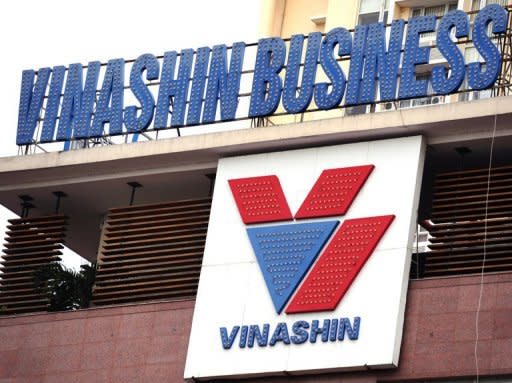Vietnam executives on trial over shipping scandal
Former top executives at a Vietnamese shipbuilder whose huge debts shook investor confidence in the communist nation went on trial on Tuesday for defying state regulations. State-owned Vietnam Shipbuilding Industry Group, better known as Vinashin, almost went bankrupt with debts totalling more than $4 billion in a scandal that sent ripples through Vietnamese politics. The scandal sparked investor fears of wider problems at state-owned firms, a key pillar of Vietnam's economy. Following a police probe, the group's 58-year-old former chairman, Pham Thanh Binh, and eight other executives were indicted in November. The defendants "intentionally violated state regulations on economic management", the president of the court Tran Van Nghiem said on the opening day of the trial, which is expected to conclude on Friday. If convicted the former executives face up to 20 years in prison each. All nine were taken to a court in the northern port city of Haiphong at dawn under tight police security, according to an AFP reporter at the scene. After about one hour, the court allowed their shackles to be removed. The scandal piled pressure on Prime Minister Nguyen Tan Dung, who appointed Binh and was considered close to the disgraced executive. At the height of the scandal in 2010, one lawmaker even called for a rare vote of no confidence in the premier. "The prime minister wants to show that, after being extremely weakened by the affair, he is back at the helm and in control of the opening up of the Vietnamese economy," said Benoit de Treglode, director of the Bangkok-based French Institute of Research on Contemporary Southeast Asia. "Vinashin's rise was closely linked to Dung's career after he became premier in 2006," he told AFP. "Through Vinashin, Dung tried to imitate the South Korean chaebols (business groups) like Hyundai, dreaming that the group could spearhead Vietnam's industrialisation while offering exceptional jobs to those close to him." State-owned groups, many of which are widely regarded as badly-managed, control some two-thirds of capital and assets in Vietnam and enjoy cozy relations with officials. Before its near-failure Vinashin was seen as a new model of state-owned enterprise that would lead Vietnam's efforts to compete on a global stage, experts say. In 2008, the company had $6 billion of orders on its books, 60,000 employees, 28 shipyards and projected growth of 35 percent a year, according to a briefing note by consulting firm Oxford Analytica. Binh once boasted that by 2015 Vietnam would be the world's number four shipbuilder. Now the former Vinashin executives are accused of losing more than $43 million, mostly from the procurement of an Italian-made high-speed passenger boat as well as two electricity plants. Questioned about one of the power plants in northeast Quang Ninh province, Binh told the court: "I was wrong in the project, but because of objective conditions... We did not give any privilege to the contractor. The bid for the project was completely objective," he said. In December 2010, the company defaulted on the first $60 million installment of a $600 million loan arranged by Credit Suisse in 2007, but no further information on the loan settlement since then is available. The government has said that no political leaders would be punished for the problems at Vinashin and the company is being restructured.



